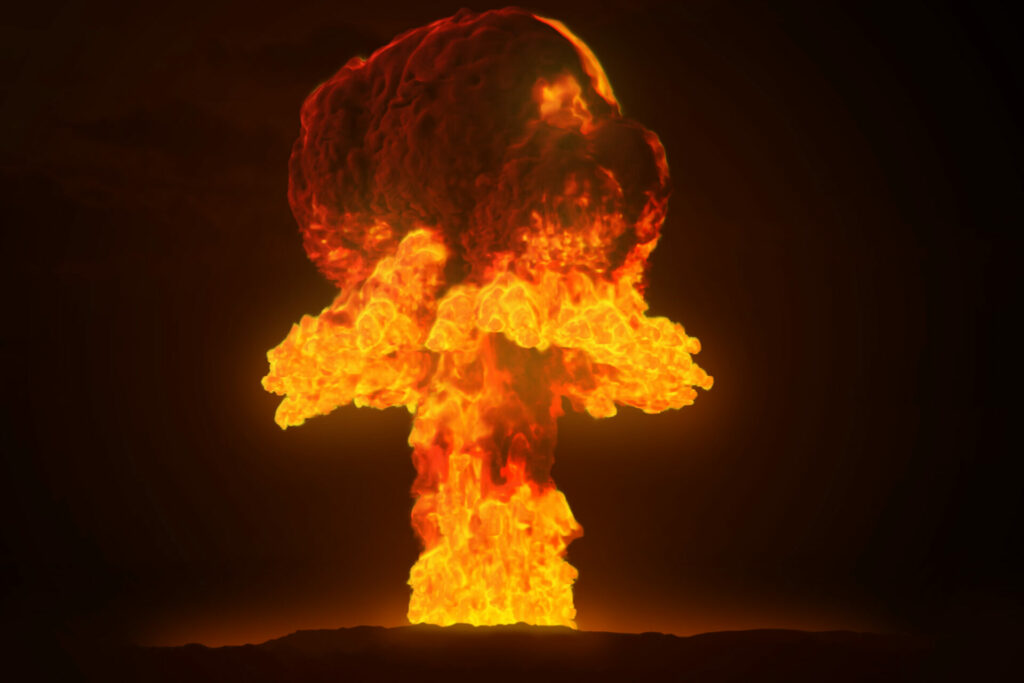The Bulletin of the Atomic Scientists moved its infamous Doomsday Clock forward by ten seconds on Tuesday to 90 seconds to midnight, and warned that humanity is now "the closest to global catastrophe it has ever been".
In an accompanying press release, the Bulletin explained that the Clock — which had remained at 100 seconds to midnight for the previous three years — was reset closer to midnight "largely (though not exclusively) because of the mounting dangers of the war in Ukraine".
"Russia's thinly veiled threats to use nuclear weapons remind the world that escalation of the conflict — by accident, intention, or miscalculation — is a terrible risk," the Bulletin stated. "The possibility that the conflict could spin out of anyone's control remains high."
Rachel Bronson, the Bulletin's CEO and President, added: "We are living in a time of unprecedented danger and the Doomsday Clock time reflects that reality. 90 seconds to midnight is the closest the Clock has ever been set to midnight; it's a decision our experts do not take lightly."
Approaching Armageddon
In addition to the direct dangers of nuclear apocalypse precipitated by Russia's war Ukraine, the Bulletin highlighted the danger posed by global warming to humanity's continued survival. Furthermore, it offered a thinly veiled criticism of European decisions to expand EU production of fossil fuels in their efforts to make a rapid break with Russian energy.
"The war's effects are not limited to an increase in nuclear danger, they also undermine global efforts to combat climate change," the Bulletin noted. "Countries dependent on Russian oil and gas have sought to diversify their supplies and suppliers, leading to expanded investment in natural gas exactly when such investment should have been shrinking."
The report also affirmed that the "continuing stream of disinformation" concerning the existence of bioweapon laboratories in Ukraine was another potential source of existential danger, given that it "raises concerns that Russia itself may be thinking of deploying such weapons".
Summarising the collective risks currently faced by humanity, the report stated: "Russia’s invasion of Ukraine has increased the risk of nuclear weapons use, raised the spectre of biological and chemical weapons use, hamstrung the world's response to climate change, and hampered international efforts to deal with other global concerns."
The way back from the brink
To step back from the precipice of global apocalypse, the Bulletin emphasised the need for both Russia and the United States to resume negotiations on renewing or even expanding the scope of the New START nuclear arms control treaty, which is currently set to expire in 2026.
The Bulletin further noted that, although there is currently "no clear pathway to forging a just peace" in Ukraine, the US and Russia must continue to engage in dialogue and, ultimately, explore ways to peacefully resolve the conflict.
Related News
- 'Humanity is dedicated to its own destruction' – Noam Chomsky
- Ukraine anticipates nuclear attack, says former Polish Foreign Minister
"The US government, its NATO allies, and Ukraine have a multitude of channels for dialogue," the Bulletin concluded. "They all should be explored. Finding a path to serious peace negotiations could go a long way toward reducing the risk of escalation."
"In this time of unprecedented global danger, concerted action is required, and every second counts."

